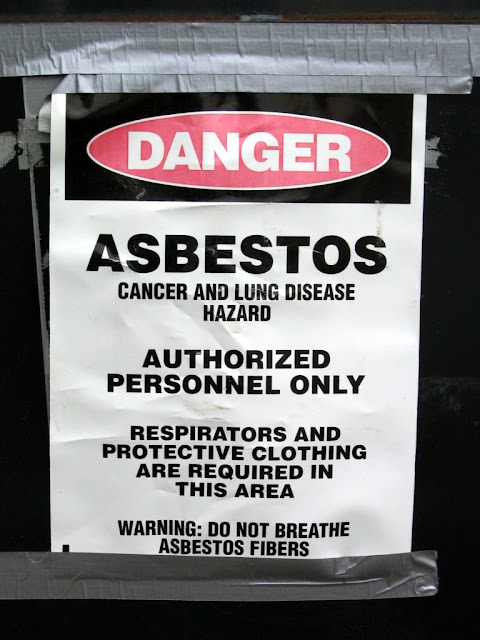TUCP-EcoWaste Coalition Joint Press Release
4 May 2023, Quezon City. As the 2023 meetings of the Conference of the Parties (COP) of the Basel, Rotterdam and Stockholm Conventions get underway in Geneva, Switzerland, Filipino groups championing labor and chemical safety rights appealed to governments to include chrysotile asbestos among the hazardous chemicals that can only be traded with prior informed consent (PIC) of the importing country.
In a joint press release, the Trade Union Congress of the Philippines (TUCP) and the EcoWaste Coalition urged the few countries blocking the listing of chrysotile asbestos under Annex III of the Rotterdam Convention to join the majority of countries seeking global consensus to control the international trade in chrysotile asbestos.
The Rotterdam Convention’s Chemicals Review Committee has long recommended the inclusion of chrysotile asbestos among the industrial chemicals to be listed in Annex III, the groups noted. According to health experts, “no safe level can be proposed for asbestos because a threshold is not known to exist,” they also pointed out.
“We urge the minority of countries to desist from blocking the long overdue decision by the COP to list chrysotile asbestos under Annex III of the Rotterdam Convention, which if adopted, will subject this hazardous chemical to the treaty’s legally binding PIC rules. Such a decision is needed to protect the health of workers and the general public from this serious threat to human health,” said TUCP President and House Deputy Speaker Democrito Mendoza.
Under the PIC procedure, governments of countries that export chemicals belonging to Annex III are required to take legal measures to prevent all exports of the enumerated chemicals to countries that have indicated they do not wish to receive them or to receive them only when some specified conditions are met.
“It’s time for the countries delaying the listing of chrysotile asbestos in Annex III to rise above political and/or economic considerations and act based on the overwhelming evidence validating that all forms of asbestos, including chrysotile, are carcinogenic to workers and other human beings and that it can cause asbestosis (a chronic lung disease) and cancers of the larynx, lungs, ovary and the mesothelium,” said Aileen Lucero, National Coordinator, EcoWaste Coalition.
While the Rotterdam Convention’s listing will not constitute a ban, a positive decision by the COP listing chrysotile asbestos in Annex III will help in controlling the importation into the Philippines and other countries of raw chrysotile asbestos and as well as materials and products containing this asbestos, the TUCP, and the EcoWaste Coalition said.
The groups had earlier asked the government to review and strengthen the Chemical Control Order for Asbestos issued in January 2000 that banned the use of amosite (brown) and crocidolite (blue) asbestos.
However, the said directive allows, controls and regulates the use of chrysotile (white) asbestos on fireproof clothing, roofing felts, cement roofing and flat sheet, friction materials, gaskets, mechanical packing materials, high-grade electrical paper, battery separators, and other high-density products.
The TUCP, the country’s biggest federation of labor unions, is pushing for a comprehensive ban on asbestos to protect auto workers, construction workers, electricians, plumbers, shipbuilders and others from asbestos exposure.
The EcoWaste Coalition, a network of public interest groups advocating for a zero waste and toxics-free society, is campaigning for sustainable policies and practices to protect human health and the environment from chemicals and wastes.
References:
https://www.euro.who.int/__data/assets/pdf_file/0015/123072/AQG2ndEd_6_2_asbestos.PDF
https://chemical.emb.gov.ph/wp-content/uploads/2017/03/DAO-2000-02-CCO-Asbestos-1.pdf










